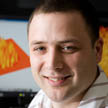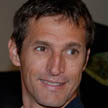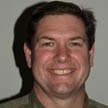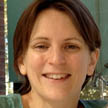I’m a Scientist is like school science lessons meet the X Factor! School students choose which scientist gets a prize of $1000 to communicate their work.
Scientists and students talk on this website. They both break down barriers, have fun and learn. But only the students get to vote.
This zone is the Boron Zone. It has a range of scientists studying all different topics. Who gets the prize? YOU decide!









Isn’t it a gateway to another universe? 🙂
Seriously – you mean at the centre of a black hole? I think the answer is that no one knows. According to Einstein’s theory of general relativity (or gravity) there is something called a singularity – a point that has zero volume, but infinite mass density. However, Einstein’s theory doesn’t take quantum mechanics into account, which you would need to describe something so small. Unfortunately, we don’t know how to combine quantum mechanics with gravity – this is a major, major problem that we have known about for decades – and there is still no answer in sight. There are lots of people working on this – and one of the best bets is something called “string theory” – but after twenty years a number of people are getting despondent that this will ever give us an answer either.
I can guarantee you that whoever solves this problem will get a Nobel Prize!
0
I am not sure… my knowledge of the black hole comes from watching Red Dwarf and other Sci Fi 🙂 I like Matthew’s answer
0
My limited sci-fi reading couldn’t compare to Matthew’s answer.
0
Black holes are a bit of a mystery. Like Matthew said, they’re what’s called a singularity and are a point of infinite density. This is just a mathematical construct though, similar to dividing one by zero (you’ll get an error on your calculator if you try it). The real answer will definitely need a theory that combines gravity with quantum mechanics, but there’s nothing especially good at the moment.
I’d disagree with Matthew on string theory though: so far it’s a lot of very elegant mathematics, but cannot be tested with observations or experiments, which means that it can’t really be called science.
Solving this problem is definitely Nobel Prize winning stuff though!
0